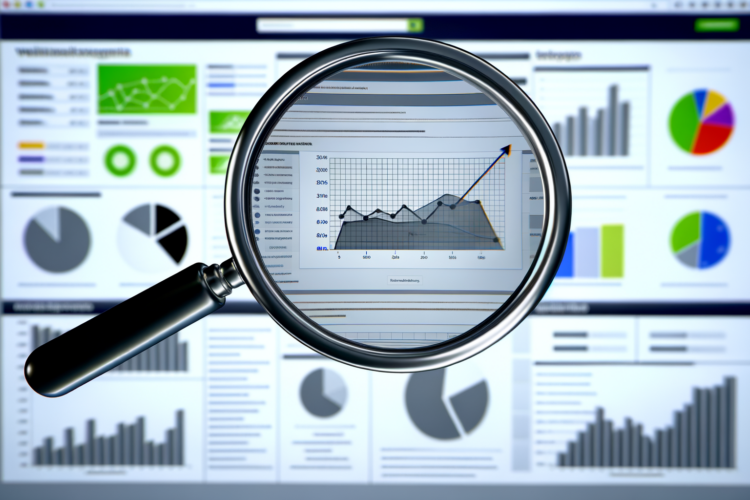
Search Engine Optimization (SEO) and analytics are cornerstone concepts in digital marketing. SEO involves optimizing a website or online content to increase its visibility and rank higher in search engine results pages (SERPs), while analytics refers to the process of collecting, analyzing, and interpreting data to understand and enhance the performance of a website or marketing campaign.
Understanding SEO: The Foundation of Online Visibility
At its core, SEO is about making your website more attractive to search engines like Google, Bing, or Yahoo. This is not just about the content but also about the structure and technical elements that affect your site’s visibility.
Key Components of SEO
SEO encompasses a range of strategies and practices, and these can be broadly categorized into on-page SEO, off-page SEO, and technical SEO:
- On-page SEO refers to the optimization of the content and HTML source code of a page. This includes using keywords effectively, creating high-quality content, and optimizing meta tags and images.
- Off-page SEO is all about the external factors that influence your site’s reputation and authority, with a significant focus on building backlinks from other reputable sites.
- Technical SEO involves improving the technical aspects of a website to enhance its crawling and indexing by search engines. This includes improving site speed, mobile-friendliness, and implementing structured data.
In practice, SEO is an ongoing process that involves research, content creation, website tweaking, and more to adapt to the ever-changing algorithms of search engines.
Analytics: Measuring Success in the Digital Space
Analytics acts as a compass in the vast sea of digital data, enabling marketers and webmasters to navigate towards success.
What Analytics Entails
Accessing website analytics provides a wealth of information, such as:
- User demographics that show who your visitors are and where they come from.
- Behavioral data that shows how visitors interact with your site, including the pages they visit, the time they spend on each page, and the actions they take.
- Traffic sources that track where your visitors are coming from whether it be direct visits, search engines, referral sites, or social media platforms.
- Conversion tracking that identifies if visitors take the desired actions on your site, like signing up for a newsletter or making a purchase.
Analyzing this data helps you understand the effectiveness of your SEO efforts and to make data-driven decisions to improve your strategies and tactics.
The Symbiotic Relationship of SEO and Analytics
While SEO is focused on optimizing for better ranking and visibility, analytics provides the feedback needed to understand if those optimizations are working.
Using Analytics to Inform SEO Strategies
Data from analytics can be incredibly powerful for shaping SEO strategies. For example:
- Analyzing which keywords are bringing traffic can inform content creation and keyword targeting.
- Understanding which pages have high bounce rates can prompt revisions to improve user engagement and retention.
- Seeing the path users take through your website can highlight which pages are most important in the buying cycle or content funnel.
Through these insights, you can better tailor your SEO approaches to your audience’s needs, maximizing both the user experience and your website’s effectiveness in SERPs.
Digging Deeper: Advanced Concepts and Tactics in SEO
As you dive deeper into SEO, you’ll encounter more advanced concepts and tactics such as:
Local SEO
Promoting your business effectively in local search results is vital if you’re running a brick-and-mortar business or a service that caters to customers in a specific geographic area.
Content Marketing
SEO and content marketing are tightly interwoven; quality content is essential for SEO success. Engaging, valuable content attracts backlinks, engages visitors, and encourages social sharing.
Mobile Optimization
With more users searching on mobile devices than ever, ensuring your website is mobile-friendly is crucial to SEO success. This includes responsive design and consideration of mobile search behavior.
SEO Trends and Algorithm Updates
SEO is an ever-evolving field with search engines regularly updating their algorithms. Keeping abreast of trends like voice search, AI, and visual search is crucial.
Implementing Analytics to Track and Improve Performance
Analytics implementation begins with setting up the right tools, such as Google Analytics, and aligning your tracking with your business objectives.
Creating a Measurement Plan
To effectively use analytics, you need a measurement plan that includes:
- Defining clear, measurable objectives for your website or campaign.
- Identifying the key performance indicators (KPIs) that will indicate success or areas needing improvement.
- Segmenting your data to provide deeper insights into different user behavior and traffic sources.
Through this plan, you can ensure that you’re gathering relevant data that speaks directly to your goals.
Analyzing and Reporting
Regular analysis and reporting keep you aware of your performance and enable you to make informed decisions. Tools within analytics platforms can help visualize data, making it easier to interpret and share insights with your team or clients.
Optimization Based on Data
Ultimately, the goal of analytics in SEO is to use the data to optimize your efforts. This may involve revisiting keyword strategies, tweaking website design, or altering content to better meet the needs of your audience and perform well in search engines.
Finishing Thoughts
SEO and analytics are the twin engines propelling websites and online marketing efforts forward. While SEO focuses on optimizing for search engine visibility, analytics provides the data and insights needed to measure effectiveness and guide strategic decisions. The interplay between these two facets is fundamental to carving out a successful presence in the online ecosystem. By utilizing SEO to enhance your online visibility and analytics to track and improve upon your performances, you set the stage for heightened online success and continued growth in the digital landscape. Whether you’re a small business owner, a blogger, or a digital marketer, understanding and implementing both SEO and analytics is critical to achieving your online objectives.
Frequently Asked Questions
What is SEO?
SEO stands for “Search Engine Optimization.” It is the practice of increasing both the quality and quantity of website traffic, as well as exposure to your brand, through non-paid (also known as “organic”) search engine results. SEO is a fundamental part of digital marketing because people conduct trillions of searches every year, often with commercial intent to find information about products and services. Search is often the primary source of digital traffic for brands and complements other marketing channels.
Why is SEO important?
SEO is crucial because it makes your website more visible, and that means more traffic and more opportunities to convert prospects into customers. Beyond that, it’s also a valuable tool for brand awareness, building relationships with prospects, and positioning yourself as an authoritative and trustworthy expert in your field.
What are the key elements of SEO?
The key elements of SEO can be broken down into on-page and off-page factors. On-page factors include things like content quality and relevance, headers, meta tags, image optimization, and URL structure. Off-page factors mainly refer to links from other websites, known as backlinks, and other external signals.
How does one measure SEO success?
SEO success can be measured using a variety of metrics including organic traffic, search engine rankings for specific keywords, conversion rate from organic traffic, bounce rate, page load time, and more. Each of these can give insights into the effectiveness of your SEO strategies.
What is analytics in terms of websites and online marketing?
Analytics in the context of websites and online marketing refers to the collection, reporting, and analysis of website data. The focus is on identifying measures based on your organizational and user goals and using the website data to determine the success or failure of those goals and to drive strategy and improve the user’s experience.
How does analytics help in SEO?
Analytics helps in SEO by providing data that can be used to improve your website’s performance in search engines. By analyzing this data, webmasters and SEO professionals can identify successful strategies and areas that need improvement. Analytics can tell you where your visitors come from, how they interact with your site, which content they prefer, and which SEO tactics are working.
What are the most common analytics tools used for SEO?
The most common analytics tools used for SEO include Google Analytics, which offers a wide range of data and reports about your website’s traffic and Google Search Console, which specifically focuses on search traffic and performance, indexing status, and issues that might affect your visibility in search results. There are also other third-party tools like SEMrush, Ahrefs, and Moz that provide additional insights and functionality.
How long does it take to see results from SEO?
SEO results take time, and the exact time can vary significantly based on numerous factors such as the competitiveness of your industry, the quality of your website and SEO efforts, and the depth of the changes you’re making. Most experts agree that it can take anywhere from a few months to a year to begin seeing the fruits of your SEO labor.
Is SEO a one-time process?
No, SEO is not a one-time process but rather an ongoing one. The reason is that the digital world is always changing — search engines regularly update their algorithms, competitors adjust their strategies, and new content is constantly being published. Regularly updating your SEO strategy and making tweaks based on performance data is crucial to staying relevant and maintaining or improving your search rankings over time.
Can I do SEO on my own, or do I need to hire a professional?
It is possible to do basic SEO on your own with a bit of learning and experimentation. There are many resources available, including blogs, courses, and books dedicated to teaching the principles of SEO. However, if you have a large website or a business with considerable competition, hiring a professional SEO expert or an agency might be a good investment to handle complex tasks and stay on top of the latest trends and algorithm changes.






